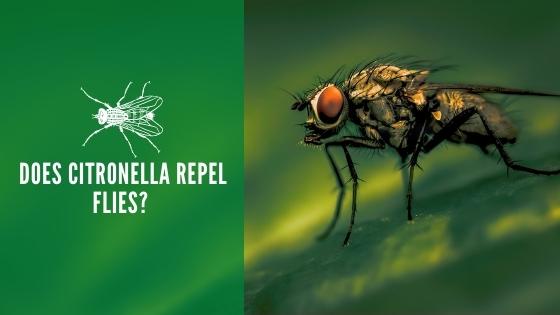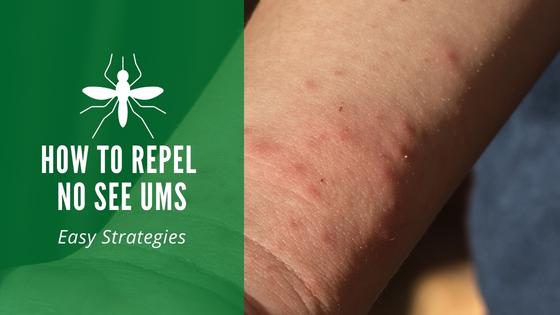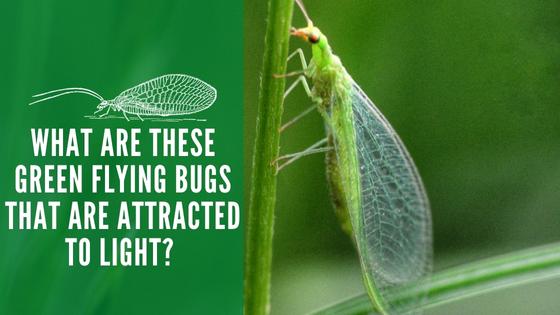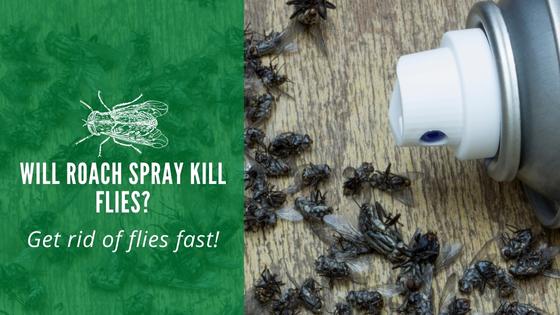Does Citronella Repel Flies?

Sitting on the back porch and enjoying a backyard barbecue is a wonderful way to spend a summer day or evening. If you are trying to enjoy a meal, one thing that can make it less enjoyable is to have flies buzzing and trying to land on your food. Citronella candles are advertised as a way to repel flies, but do they work?
Do Citronella Candles Repel Flies?
Citronella candles are typically advertised to keep away mosquitoes, and many people assume that if they work for mosquitoes, they will work for flies, too. Citronella oil is extracted from a grass known as Cymbopogon nardus. It has a fresh, lemony scent that is more pleasant than many chemical fly repellents.
It was first listed as a natural insect repellent in 1948, but it has received conflicting results from a scientific standpoint. A majority of the studies focused on the ability of citronella to repel mosquitoes, but a few studies explored its use with flies. Many of the findings agreed that candles were the least effective way to repel flies.
The reason is that the smoke from the oil is quickly dispersed, and the concentration is not strong enough to repel them. It will work if the candle is placed within a foot or two of the food. Even a slight breeze makes the oils disperse so quickly that it becomes ineffective.
How to Use Citronella to Repel Flies
Citronella oil works to repel flies, but only in high enough concentrations. Keeping the essential oil around is the most effective way to repel flies and other insects. Many people believe that placing “Citronella” scented geraniums around the patio will help repel mosquitoes and flies.
Studies that tested sitting close to a citronella plant found this ineffective because the plant does not release enough oils unless you continually rub the leaves. Citronella scented geranium smells like citronella oil, but citronella oil is made from a different plant.
Cotton balls soaked in citronella oil were found to repel flies in one experiment. It performed similarly to lavender and oil blends containing citronella. Eucalyptus was found to be the most effective at repelling adult flies. This experiment suggests that an effective way to repel flies using citronella oil is to soak a cotton ball in it and leave it on the table and at several locations around the area.
It is thought that it repels flies by masking the smell of what attracts them. It overloads their sensory organs, and they cannot detect their favorite food. Also, since it is toxic to flies, they are likely to avoid it. The key is to keep the concentration of the oil high enough, which is more difficult outdoors, regardless of the method of oil dispersal you use.
What Smells Do Flies Hate the Most?
Lavender and cinnamon oil were found to be the most effective at repelling common houseflies. Neem and vanillin were also found to be effective. Eucalyptus was the most effective at repelling common houseflies and caused the highest mortality rate.
One thing to consider is that these experiments used the common housefly, which is the most common pest to invade our spaces. It might not work on other types of flies. A combination of oils containing lavender, citronella, eucalyptus, and oil of basil might make an excellent natural way to repel flies and keep them away from your outdoor spaces.
What Bugs Does Citronella Repel?
One of the reasons why citronella and other plant-based insect repellents work is that they produce chemicals designed to keep pests and insects from feeding upon them. These substances can be grouped into several categories that are effective against certain types of insects.

These plants have evolved to emit these substances when leaves are damaged, such as when an insect eats them. Certain types of insects have receptors that are sensitive to certain compounds. The oils from citronella work on many types of insects, but not all of them. Here are some of the insects that citronella has been found to repel.
You can find many citronella products on the market, and it is important to read the labels and do your research. Some products on the market do not contain enough citronella oil to be effective. Many of them blend oils and only contain a small percentage of citronella.
One of the issues with citronella is that it is highly volatile and dissipates after about two hours. Some products on the market contain stabilizers to help the oil dissipate more slowly and extend the amount of time it is effective.
Like many other essential oils and products, you will need to reapply citronella often, and you will need to refresh diffusers and cotton balls soaked in the oil. Also, you need to keep in mind that citronella only works on certain types of insects, so you might want to use several insect-repelling methods to keep unwanted guests away from your barbecue.
Sources:
https://onlinelibrary.wiley.com/doi/full/10.1111/jvec.12357
https://www.sciencedirect.com/topics/medicine-and-dentistry/citronellal



